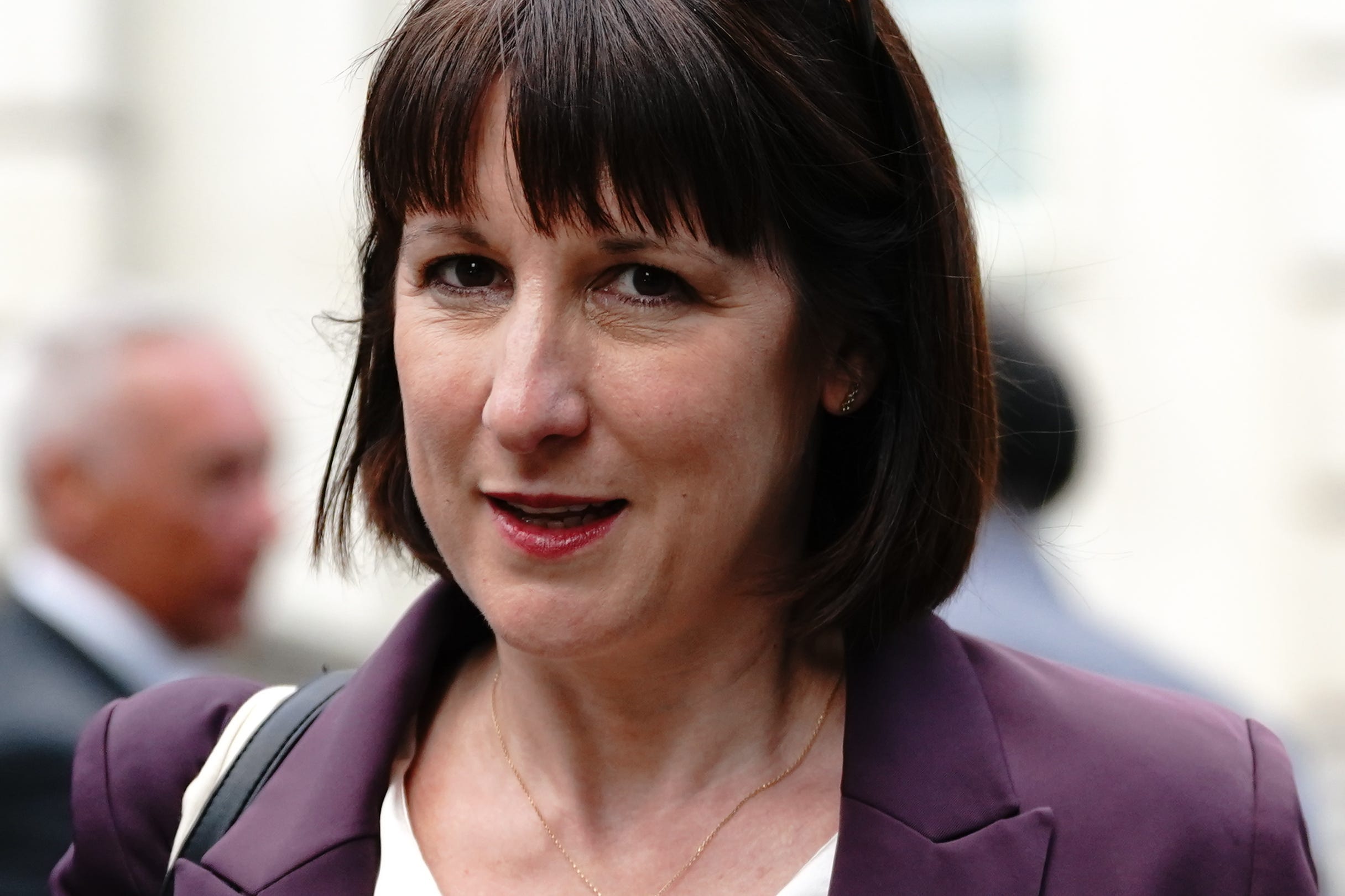Prudence is back! But Gordon Brown’s friend has a new name: Rachel…
...and she’s even stricter this time, writes John Rentoul. Shadow chancellor Rachel Reeves has gone even further than Brown did, ruling out a wealth tax and shutting down new spending pledges


Keir Starmer wants to be the new Tony Blair, and with a soaring lead in the opinion polls and talk of a Labour landslide he has been partly successful.
But Blair was a partnership, and recently Starmer seems to be trying to be the new Gordon Brown as well. The Labour leader is copying Brown’s fiscal rectitude and his stubbornness. He has come out against the ultra-low-emission zone because he dislikes the idea of an extra charge on drivers.
And Brown’s friend Prudence is back. As shadow chancellor and then chancellor, Brown was both praised and mocked for his imaginary companion, the sober-suited guardian of balanced books and strict controls on public spending.
The sketch writers had fun elaborating the story behind Prudence, Brown’s long-time girlfriend, who came after the Romanian princess and before Sarah Macaulay, whom he married in 2000. They teased Brown for his soundbites about “prudence for a purpose”. But she was a slogan with a purpose, and she succeeded in helping Brown win over the Daily Mail, which admired the fiscal restraint of “the son of the manse”.
She even featured in the title of William Keegan’s book about Brown’s first term as chancellor, The Prudence of Mr Gordon Brown. This was an admiring assessment of Brown’s attempt to “establish a reputation for financial probity which would enable Labour to embark on a public spending programme which the electorate and the financial markets would regard as sensible and affordable”.
Now Prudence is back. She has a new name, Rachel, and she is more hardline this time. At the weekend Rachel Reeves, Starmer’s shadow chancellor, ruled out a wealth tax under a Labour government, and went further – much further than Brown ever did. She said: “We don’t have any plans to increase taxes outside of what we’ve said.” When it was put to her that “no plans” was a classic non-denial, she hit back: “We won’t be doing that. It’s a denial. It’s not a non-denial, it’s just a denial.”
Thus spoke Prudence: “We won’t be doing that.” In other words, she promised not to increase taxes at all, apart from the three small changes already announced – VAT on school fees, abolishing non-dom status and a higher tax on some private equity fund profits.
It was a “read my lips: no new taxes” moment, comparable to George Bush Sr’s pledge in the 1988 US presidential election campaign. The reason it is famous, of course, is that those words came back to bite him – he raised taxes – and Bill Clinton, running as a “balanced budget Democrat” hit him hard with the broken promise.
But the pledge served its purpose at the time, just as Reeves’s rock-hard refusal to countenance any higher spending, borrowing or taxes (beyond the limited promises already made) has boosted her reputation, not just with the Daily Mail but with the wider electorate.
She has enjoyed adulatory profiles in all the newspapers. She worked for the Bank of England and she plays chess. She is a forceful and combative performer in the Commons – a bit like Brown. And she has been as strict as Brown in shutting down spending pledges.
Bridget Phillipson, the shadow education secretary, made – and then unmade – a promise to spend £15bn on post-pandemic catch-up spending in schools. Reeves retreated from her own pledge to invest £28bn a year in green tech. Starmer, meanwhile, has abandoned the spending plans in the manifesto on which he was elected leader, most notably the promise of “free” tuition for students.
On taxes, though, Reeves is now more “prudent” than Brown ever was. Brown and Blair ruthlessly attacked John Major from the right, accusing him of “22 tax rises”, and New Labour promised not to put up income tax rates. But Brown was careful to keep his options open on other taxes. Indeed, once he had established a reputation for fiscal restraint, he and Blair raised national insurance contributions – the least unpopular general tax – to pay for the NHS in 2003.
Reeves has ruled out any such manoeuvre this time, saying that the tax burden is already too high. After the cost of living crisis of the past few years, she and Starmer calculate that higher taxes are a vote-loser – and that even if they are restricted to a tiny minority of the richest, they might put off the middle-income voter.
It is all very well people saying to an opinion pollster that there should be a wealth tax on people with more than £10m in assets (78 per cent supported it, according to YouGov in January). But if the Labour Party actually proposed it, the question asked by some voters worth less than £10m would be: “Where does the confiscatory instinct end?”
That is why Prudence is back, and this time she really means it.







Join our commenting forum
Join thought-provoking conversations, follow other Independent readers and see their replies
Comments